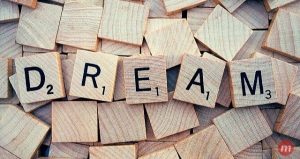For quite a long time, individuals have scrutinized the significance of dreams. Early developments considered dreams of a medium among people and divine beings. The Greeks and Romans were persuaded that dreams could anticipate what’s to come. From that point forward, circumstances are different obviously. Presently there are various speculations on dream implications and dream translation. In this article, we see what is the meaning of dreams, what occurs while we dream, and whether our fantasies have any noteworthiness.
Table of Contents
What do you understand by the term dreams?
Dreams are a regular human experience that can be depicted as a condition of awareness portrayed by tangible, intellectual, and enthusiastic events during rest. The visionary has diminished authority over the substance, visual pictures, and actuation of the memory.
There is no intellectual expression that has been as broadly considered but then as regularly misunderstood as dreaming. There are critical contrasts between the neuroscientific and psychoanalytic ways to deal with dream examination.
What occurs while we dream?
Dreams are stories and pictures that our minds make while we rest. They can be engaging, fun, sentimental, upsetting, terrifying, and sometimes strange as well. Researchers have found that we see about 3-6 dreams in a single night and out of that 95% of the dreams that we see are unable to remember the next morning.
Want more details on what is the meaning of dreams? Scroll down to read more such details.
Why do we dream and how does it play a vital role in our lives?

What do dreams mean and the reason why do we see them?
There are a few speculations regarding why we dream. Are dreams simply some portion of the cycle of rest, or do they fill some other need?
Potential clarifications include:
- addressing oblivious cravings and wishes
- decoding random signs from the mind and body during rest
- fixing and handling data collected during the day
- functioning as a type of psychotherapy
From the proof and new exploration philosophies, analysts have guessed that dreaming serves the accompanying capacities:
Enjoying reading the meaning of dreams? Read more…
- disconnected memory reprocessing, in which the mind combines learning and memory assignments and supports and records waking cognizance
- planning for conceivable future dangers
- intellectual reproduction of genuine encounters, as dreaming is a subsystem of the waking default organization, the piece of the brain dynamic during fantasizing
- creating psychological abilities
- reflecting oblivious mental capacity in a psychoanalytic manner
- a novel condition of awareness that consolidates the experience of the present, handling of the past, and groundwork for what’s to come
- a mental space where overpowering, opposing, or exceptionally complex thoughts can be united by the dreaming personality, ideas that would agitate while alert, serving the requirement for mental equilibrium and balance
Much that stays secret about dreams. They are naturally hard to concentrate in a lab, yet innovation and new exploration strategies may help improve our comprehension of dreams. Dreams occur during the Rapid Eye Movement-the cycle of sleep. During REM sleep, your eyes move quickly in different directions. Usually, REM sleep happens 90 minutes after you fall asleep. You tend to have intense dreams during this time as your brain is more active. You might also have a question how long do dreams last? Continue reading to find out.
Do dreams truly mean anything?

While we regularly appreciate reviewing our dreams the next day, it’s imperative to translate if there’s any essentialness in dream indications. There are various hypotheses with regards to dreaming understanding and whether they mean something, and the vast majority of those speculations offer various perspectives.
One neurobiological hypothesis of dreaming is the Activation-Synthesis Hypothesis. This was proposed by Harvard University specialists, John Allan Hobson and Robert McCarley. The hypothesis expresses that dreams don’t really mean anything. All things being equal, they’re only electrical cerebrum motivations that pull irregular thoughts and analogy from our recollections. The hypothesis recommends that people build dream stories after they awaken. This is a characteristic endeavor to sort out it all.
How would I interpret dream meanings?
Dream translation permits you to comprehend if your dreams are uncovering something to you. There are sure things you can do to resolve your dream indications. Loewenberg says: “basically, you need to do a near investigation between the analogy and activities in the dreams to the incidents of your earlier day.”

Consequently, you should focus on the substance you had always wanted in informed existence. “On the off chance that you begin keeping an everyday diary couple with a dream diary, you will totally begin seeing linking between your dream symbolism and your day-by-day battles and accomplishments.
For instance, you may see that when your relative came over for dinner, you wished for being violated by a bear that evening. At the point when you handled a record at work you’d been going after, you may dream you won the lottery that evening. Or on the other hand, when something you were overly amped up for didn’t work out, you may find that you long for a plane accident or of falling that evening.”
While we may not know a lot when it comes to dreaming meanings, more can be said about the benefits of dreaming. For example, the REM stage in which we dream also allows us to commit things we learn to recall, meaning dreaming will help with cognitive processes. As well as this, dreams offer emotional benefits, such as introspection.
Loewenberg adds: “Our dreams are full of information, advice, guidance, and even warnings we need to know about ourselves and our lives. Dreaming is a very deep and profound thinking process in which we focus solely on the self. Through dreaming, we examine our current issues, behaviors, and goals.
We come up with ideas, we sort things out, we look at ourselves in a deeper light, we gain a clearer picture of ourselves and the situation so that we can make better decisions. Those of us that are dream researchers and who use dreamwork in our mental health practices have found that dream interpretations are the deepest form of therapy available.”
On top of the cognitive and emotional benefits of dreaming, dreams can also aid creativity and many ideas for famous songs, paintings and films came from dreams. For example, Salvador Dali’s Persistence of Memory was inspired by a dream, as was Christoper Nolan’s Inception. So these were the things that can explain what is the meaning of dreams.
Want to why do we dream psychology. Connect with us and receive a file about the same.




